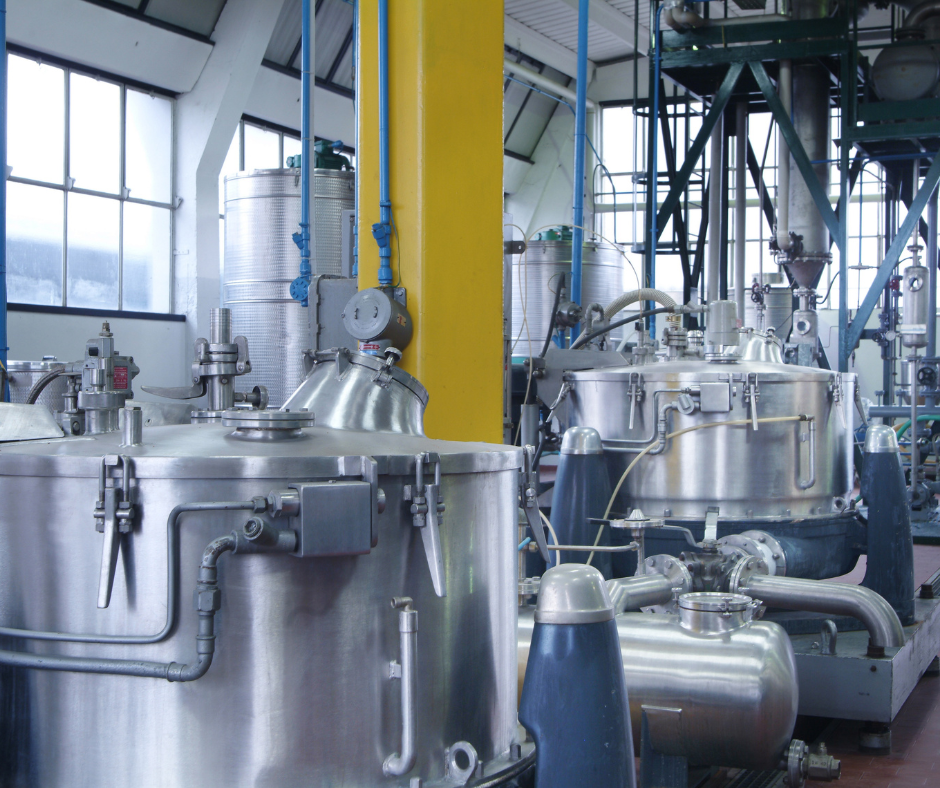Chemical supply chain management is a complex process that involves the production, transportation, storage, and distribution of chemicals from manufacturers to end-users. Chemicals are used in many industries, including agriculture, healthcare, and manufacturing, and they are essential to modern life. However, managing the chemical supply chain can be challenging due to several factors, including:
- Complex regulations: Chemicals are subject to a wide range of regulations and laws at the national, regional, and international levels, which can vary significantly from one location to another. These regulations cover many chemical supply chain management aspects, including labeling, packaging, storage, transportation, and disposal. Ensuring compliance with all applicable regulations can be challenging and costly.
- Safety risks: Many hazardous chemicals pose a significant risk to human health and the environment if not correctly handled. The potential for accidents, spills, and leaks during transportation or storage can result in severe consequences, including injuries, property damage, and environmental contamination.
- Supply chain complexity: The chemical supply chain often involves multiple suppliers, distributors, and end-users. Managing these complex networks of suppliers and customers can be challenging, and supply chain disruptions, such as natural disasters, strikes, or pandemics, can significantly impact chemical production and supply.
- Raw material availability: Many chemicals are made from non-renewable resources, and their availability can be affected by geopolitical and economic factors, including price fluctuations and trade restrictions. This can lead to supply chain disruptions and impact the availability of chemicals for end-users.
In this article, we will cover the following more in details:
- Complex Regulations of Chemical Supply Chain Management
- Safety Risks of Chemical Supply Chain Management
- Complexity Of Chemical Supply Chain Management
- Raw Material Availability for Chemical Supply Chain Management
- Strategies and Tools for Chemical Supply Chain Management
- How can Deskera Help You?
- Conclusion
Complex Regulations of Chemical Supply Chain Management
The chemical supply chain is heavily regulated to ensure the safe production, storage, transportation, and disposal of chemicals. The regulations governing chemical supply chain management can vary widely from country to country and may include laws and regulations from multiple levels of government, including national, regional, and local authorities.
Some of the key regulatory challenges in chemical supply chain management include the following:
- Hazard classification and labeling: Chemicals are often hazardous, and they can pose significant risks to human health and the environment if not properly handled. To help mitigate these risks, chemicals must be classified according to their hazards, and proper labeling must be applied to packaging and containers. The classification and labeling of chemicals are typically governed by national and international regulations such as the Globally Harmonized System (GHS) of Classification and Labeling of Chemicals.
- Chemical registration: Chemical manufacturers must typically register their products with relevant regulatory agencies, such as the Environmental Protection Agency (EPA) in the United States. Registration requirements can vary by country, but generally involve providing detailed information about the chemical's properties and potential hazards.
- Chemical storage and transportation: Chemical storage and transportation are subject to strict regulations to ensure the safe handling and transporting of hazardous materials. Regulations often require specialized storage facilities, equipment, specific transportation modes, and packaging requirements. The regulations governing chemical storage and transportation can vary by country and may include regulations such as the US Code of Federal Regulations (CFR) and the European Union's REACH (Registration, Evaluation, Authorisation and Restriction of Chemicals) regulation.
- Waste disposal: Chemical waste disposal is highly regulated to ensure the safe handling and disposal of hazardous materials. Regulations often require the proper labeling, storage, and transportation of hazardous waste and strict disposal standards. The regulation of chemical waste disposal can vary by country and may include regulations such as the Resource Conservation and Recovery Act (RCRA) in the United States and the Basel Convention on the Control of Transboundary Movements of Hazardous Wastes and Their Disposal.
- Import and export controls: Many countries regulate the import and export of chemicals to ensure that hazardous chemicals are not traded or used in ways that could harm human health or the environment. These regulations often require permits or licenses to import or export chemicals and may include restrictions on certain chemicals, such as those listed in the Stockholm Convention on Persistent Organic Pollutants (POPs).
Complying with these complex regulations is a critical aspect of chemical supply chain management, as failure to do so can result in significant legal, financial, and reputational risks for chemical manufacturers and their supply chain partners. As a result, companies must remain vigilant and up-to-date with the latest regulatory requirements and maintain effective compliance programs to ensure that they meet all applicable regulatory standards.
Safety Risks of Chemical Supply Chain Management
Chemical supply chain management can pose a range of safety risks, which must be carefully managed to protect workers, the environment, and the general public. Some of the key safety risks associated with chemical supply chain management include:
- Chemical spills and releases: Chemical spills and releases can occur at any point in the supply chain, from the transportation of raw materials to the storage and handling of finished products. These incidents can cause serious harm to workers, nearby communities, and the environment, and can result in costly cleanup and remediation efforts.
- Fire and explosions: Chemicals can be highly flammable and explosive, posing a risk of fire and explosion during transportation, storage, and handling. This can result in serious injury or death, as well as property damage and disruption to the supply chain.
- Worker safety: Workers involved in chemical supply chain management are exposed to a range of risks, including exposure to hazardous chemicals, physical strain from lifting and moving heavy materials, and transportation-related risks. Employers must ensure that workers receive proper training and personal protective equipment to minimize these risks.
- Environmental impacts: Chemical supply chain management can have a significant impact on the environment, including air and water pollution, soil contamination, and damage to wildlife and ecosystems. Companies must take steps to minimize their environmental footprint and comply with relevant regulations to prevent these impacts.
- Security risks: Chemicals can be a target for theft or misuse, posing a security risk to the supply chain. Companies must implement robust security measures to prevent unauthorized access and ensure that chemicals are stored and transported safely.
To manage these safety risks, chemical companies must develop comprehensive safety programs that incorporate risk assessments, training, and ongoing monitoring and evaluation. This may include:
- Developing and implementing comprehensive safety procedures and policies, including emergency response plans and protocols for handling spills and releases.
- Providing ongoing safety training to employees at all levels of the organization, including workers, supervisors, and management.
- Conducting regular safety audits and risk assessments to identify potential hazards and evaluate the effectiveness of safety programs.
- Ensuring compliance with relevant safety regulations and industry standards, and staying up-to-date with new and emerging safety risks and best practices.
- Establishing a culture of safety that prioritizes the well-being of employees, the environment, and the community.
Overall, effective safety management is critical to the success of chemical supply chain management, and companies must be vigilant in identifying and addressing safety risks throughout the supply chain.
Complexity Of Chemical Supply Chain Management
Chemical supply chain management is highly complex due to the unique challenges and risks associated with handling and transporting hazardous materials. The complexity of chemical supply chain management can be attributed to several factors:
- Diverse stakeholder base: Chemical supply chains involve numerous stakeholders, including raw material suppliers, manufacturers, distributors, transportation providers, and end customers. Each stakeholder has its own objectives and constraints, and effective management of the supply chain requires close coordination and collaboration among all parties.
- Complex regulations: Chemical supply chains are subject to a wide range of regulations aimed at ensuring the safe handling, transport, and disposal of hazardous materials. These regulations can vary widely by country and region, and can be highly complex and difficult to navigate. Compliance with these regulations is critical to avoiding legal and reputational risks, and requires ongoing monitoring and adjustment as regulations change.
- Unique risks: Chemicals pose unique risks to human health and the environment, and mishandling or accidents can have severe consequences. Supply chain management for chemicals must take into account the risks associated with each chemical and ensure that proper safety measures are in place at each stage of the supply chain.
- Supply chain disruptions: Chemical supply chains can be subject to a variety of disruptions, including natural disasters, accidents, and unexpected demand changes. These disruptions can cause significant delays and increase costs, and effective management requires contingency planning and rapid response to minimize their impact.
- Complexity of the product: Chemical products can be highly complex and require specialized knowledge and expertise to produce and handle. Supply chain management for chemicals must take into account the unique properties of each chemical, including its physical characteristics, handling requirements, and potential hazards.
To effectively manage the complexity of chemical supply chain management, companies must implement robust supply chain management systems and processes, including risk management and contingency planning, ongoing monitoring and reporting, and close collaboration with stakeholders at all stages of the supply chain. Additionally, ongoing education and training programs for employees and supply chain partners are critical to ensure that everyone involved in the supply chain understands the unique risks and requirements associated with chemical supply chain management.
Raw Material Availability for Chemical Supply Chain Management
Raw material availability is a critical factor in chemical supply chain management, as it directly impacts the ability of chemical manufacturers to produce and deliver their products to customers. The availability of raw materials can be affected by a range of factors, including natural disasters, supply chain disruptions, geopolitical factors, and changes in demand.
One of the key challenges of raw material availability is the need to balance supply and demand. Chemical manufacturers must ensure that they have sufficient raw materials on hand to meet their production needs, while avoiding excess inventory that can lead to additional costs and supply chain disruptions. This requires careful monitoring of demand patterns, as well as ongoing communication with suppliers to ensure that raw materials are available when needed.
In addition to managing demand, chemical manufacturers must also navigate the complexities of raw material sourcing. Many chemicals rely on rare or hard-to-find raw materials, which can be subject to fluctuations in supply and price. Chemical manufacturers may also face challenges in sourcing raw materials from certain countries or regions due to geopolitical factors, such as trade barriers or political instability.
To mitigate the risks associated with raw material availability, chemical manufacturers may employ a range of strategies, such as:
- Diversifying their supply base to reduce reliance on any one supplier or geographic region.
- Investing in strategic inventory management to ensure that raw materials are available when needed, without creating excess inventory.
- Establishing strong partnerships with suppliers to ensure ongoing communication and collaboration, and to identify potential supply chain risks and disruptions.
- Developing contingency plans to respond quickly to supply chain disruptions, such as by identifying alternative suppliers or modifying production processes.
Overall, the availability of raw materials is a critical factor in the success of chemical supply chain management, and effective management requires careful monitoring of demand, strategic planning, and ongoing collaboration with suppliers and other stakeholders.
Strategies and Tools for Chemical Supply Chain Management
There are a variety of effective strategies and tools that chemical companies can use to manage their supply chain, including:
- Supply chain visibility: Companies can leverage technology solutions to gain greater visibility into their supply chain, from the sourcing of raw materials to the delivery of finished products. This can help to identify potential supply chain disruptions and enable rapid response to minimize their impact.
- Risk management: Effective risk management strategies can help companies to mitigate the risks associated with chemical supply chain management. This can include establishing contingency plans for supply chain disruptions, monitoring supplier performance, and implementing strict quality control procedures.
- Collaboration with suppliers: Close collaboration with suppliers is critical to effective chemical supply chain management. Companies can work with their suppliers to establish clear performance expectations, develop long-term relationships, and implement joint improvement initiatives.
- Continuous improvement: Companies can use lean and continuous improvement methodologies to identify and eliminate waste and inefficiencies in their supply chain. This can help to reduce costs, increase efficiency, and improve overall supply chain performance.
- Data analytics: Companies can leverage data analytics tools to gain greater insight into their supply chain performance, identify areas for improvement, and make data-driven decisions. This can include tracking key performance indicators (KPIs), monitoring supplier performance, and using predictive analytics to forecast demand and anticipate potential supply chain disruptions.
- Sustainability: Chemical companies can also adopt sustainability practices that help to reduce their environmental impact and support social responsibility. This can include adopting circular economy principles, reducing waste and emissions, and sourcing materials from sustainable sources.
Overall, effective chemical supply chain management requires a combination of strategies and tools tailored to each company's specific needs and challenges. Chemical companies can improve supply chain efficiency, reduce costs, and minimize risks by adopting a comprehensive approach that incorporates technology, risk management, collaboration, continuous improvement, data analytics, and sustainability practices.
How can Deskera Help You?
Deskera's integrated financial planning tools allow investors to better plan their investments and track their progress. It can help investors make decisions faster and more accurately.
Deskera Books can assist you in automating your accounting and mitigating business risks. Deskera makes it easier to create invoices by automating many other procedures, reducing your team's administrative workload.
Deskera also offers a suite of integrated applications to help businesses manage their financials, inventory, and operations. Furthermore, other business aspects such as HR (Deskera People), CRM (Deskera CRM), and ERP are provided by Deskera. These could be crucial and can help short sellers keep track of their businesses and make better decisions.
Conclusion
In conclusion, the complexities of chemical supply chain management require a multi-faceted approach that takes into account regulatory compliance, safety risks, supply chain complexity, and raw material availability. Effective strategies, such as supply chain visibility, risk management, collaboration, and sustainability, can help to manage these complexities and build a more resilient and sustainable chemical supply chain.
Related Articles












